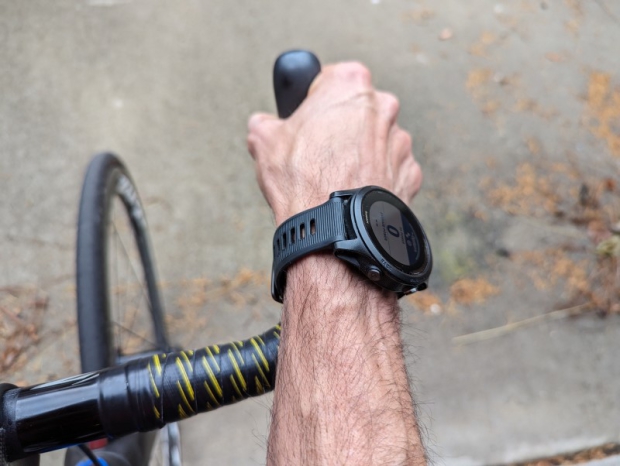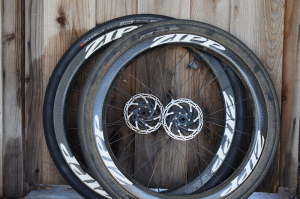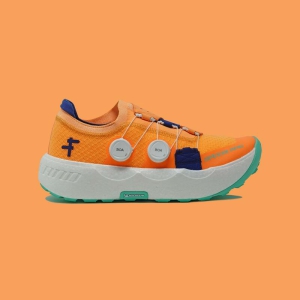
When I first started rowing, I was captivated by the objectivity of the Concept 2 ergometer. At any moment, you knew exactly how hard you were working. Tracking improvement was purely mathematical. It was my first meaningful exposure to the concept of time as a measurement of performance and competition. I'd always been a ball sport player, and mostly team sports - football, squash, and lacrosse. I'd done swim team in middle school, but I wasn't very good (my growth spurt wouldn't come until high school), and racing didn't resonate with me the way it eventually would. It wasn't until I started rowing that I understood what it really meant to have your entire world defined by the ticking of a clock.
I had gone to Princeton hoping to walk on to the then three-peat NCAA division 1 championship lacrosse team. It was a long shot - and I picked the university more for its academics than its sports, but as a high school All-American, I thought it was not impossible. Unfortunately, I was a goaltender, and there's only so many "extras" of those required, unlike a more utilitarian position like a midfielder. It was a devastating blow when I didn't make the team, since being an athlete had always been a part of my identity. I actually was a four-letter athlete in high school - I was a part-time member of the cheerleading squad as the school mascot, and I didn't really know what to do with myself if there wasn't practice at the end of the day.
I played a season of "sprint football" - it's a weight-limit variant of the game played by only a handful of schools including Princeton, Cornell, West Point, Annapolis, and a couple others. But I wasn't much good at football and, honestly, I didn't really like being a part of a team that wasn't particularly competitive. I'd never been a part of a team with a losing record before, and it did not sit well with me. At that time - late 90's, college rowing was still fairly receptive to walk-ons. The coaches would stand by freshman class registration and holler at anyone tall - especially females - and ask if they wanted to row. It's almost entirely dominated by recruited athletes; and even in my case, I was one of only a couple walk-ons to eventually make the varsity boat. But - unlike with lacrosse - rowing was a sport where anyone who was willing to do the work was welcome.
What I didn't know then - but came to quickly discover - is that the rowing coaches relied on the work to weed people out. They didn't need to cut athletes. The erg would do it for them. But for me, it was a revelation. Having spent so long in sports where the subjective opinion of coaches was the only thing that mattered - and having been frustrated by that on numerous occasions, here was - at last - a sport where you were evaluated (it seemed) based solely on numbers. I'd eventually come to realize that the subjectivity of coaches was as much a part of rowing as any other sport, but as a freshman, at least, the erg was the only thing that mattered. Make the numbers better, and it means you are getting better. If your numbers are better than someone else's numbers, you are better at rowing than someone else. For four years, this defined my approach to sport, and while it was overly simplistic, it was transformative. This made sense to me in a way that sport had never really made sense before.
When I picked up triathlon after graduating - ostensibly as a way to cross train while recovering from a rowing injury, I missed the pure objectivity of the erg. If I wasn't running on the track, I didn't know really how fast I was running. I quickly discovered that speed on the bike was fairly useless, and HR was often as confusing as it was helpful. The pace clock was wonderful - and made sense in a way that it never did back in middle school - but it lacked the immediacy of the erg where you knew precisely how good each and every single stroke was.
When I started working with Joel Filliol in 2005, he insisted I buy an SRM. That first ride transported my back to the boathouse. Cycling suddenly made sense. From that point on, I've logged essentially every ride I've ever done on a bicycle with a powermeter. On the very rare occasions I'd ride without a powermeter - usually in the offseason when I'd dabble with mountain biking, I admittedly felt a bit incomplete. Did that ride even count? I had my doubts…

Running was still a bit of a grey area; I loved the track and also bought a meter wheel so I could measure out precisely some of the common time-trial sections I ran hard efforts on. But I hated not knowing with precision exactly how far or how fast I had run. When Joel took the job as head coach of British Triathlon in 2009, I started working with Michael Krueger, who was my coach for essentially the remainder of my professional career. Similar to how Joel had mandated a powermeter, Michael insisted that I get a GPS watch for running. It was imperative that he have some quantitative insight into my running and - in particular - he was prescriptive about specific pace targets in a way that Joel hadn't been. I had owned the very first Garmin Forerunner - the pill shaped 101 - but I lived at the time in a fairly tree-heavy area in New York and the receptivity and reliability of the device simply wasn't very good. Prescriptive paces also wasn't something that was so core to my training then - it was reserved for track sessions, and so it never became as integral to my training as my powermeter. But GPS evolved - I'm an enthusiastic Garmin fanboy and have lost track of how many different Forerunners I've now owned - and the 305 was reliable enough - even in the trees - that, along with the changes to the way that I trained, it became my constant companion. As with cycling, if there was no second-by-second record of my run, did it even happen? I wore my 305 so much that I ended up getting blisters on my wrist - I loved it, but I do not miss its bulk - and had to fashion a special pad (out of an old latex innertube) to keep it from abrading my wrist.
And this was just how I trained. I needed to see the numbers. The training was the numbers. And the numbers were the training. I certainly enjoyed my surroundings. I loved - and still love - being outside. But I also needed that feedback - immediate and omnipresent - to feel complete. To feel like I was properly preparing - because training was always about preparation and about competition. But the Covid shut the world down. It forced me - and everyone else in the world - to take a break from competition. And it also allowed me, finally, to actually retire from sport. I'd retired officially - well, as officially as any pro triathlete ever retires, whatever that even means in our sport - in 2017 when I went to work at Zwift. But in my mind, being an athlete remained my primary identity. The lockdown allowed me to finally let go of that. To have sport be something I did rather than something I was.
And it made me develop a renewed appreciation for having fun - Type-2 fun, admittedly, but fun nevertheless. I still loved data. I still loved knowing that even as I was getting older, I was still plenty fast - in some cases, when I was purely focused on cycling, I was even faster! And I think the dedication and commitment - though perhaps no longer truly an obsession - with data and objectivity is just a part of who I am. But I was happy with it serving mostly as a historical record. There are those times when I go hunting for KOMs - or more likely PRs; Southern California is home to too many very fast people - when I value the immediacy of information. But more often, I just like knowing how I did, rather than how I'm doing.
Numbers still matter to me. A lot. But I also care equally as much about having fun. About just enjoying the outdoors. About taking a break from my desk and being grateful that I am still healthy, still fit, and still able to be active every day. The biggest change I made was that I stopped using a bike computer. I didn't want my power to be starting me in the face every moment of every ride. My cockpit is clean, which has the added benefit of being incredibly pleasing aesthetically. I still have my power and GPS data - it's just on my watch. My Forerunner has become my riding computer as well as my running computer. I had the idea to start using my watch as my bike computer because I realized how long I could and would go without ever looking at my watch when I ran. I'd just go run. And I might never look at my watch. And I thought, I wonder if I'd like riding like that. And it turns out I do.
Ironically, I've gotten back on the rowing machine, and when I row, I now look at power rather than pace, because power on the erg is somehow less objective. Pace was the guiding metric when I was racing. Power has an abstractness to it on the Concept 2 that makes it … more fun.
I realize how small this seems. The data is still right there. But it's also not. The difference between a bike computer with your precise wattage in the most prominent location possible and a watch you might never look at has been, for me, enormous. It's transformed the way that I ride and, more importantly, the way that I think about riding. When I go ride now, I think about having fun. About simply enjoying being outside. A clean cockpit - but with the security of knowing that I have the data if I want it - has been a revelation. I just wanted to think of riding as training a bit less. But I discovered I was able to almost entirely change my mindset. And, in doing so, I've actually ended up riding more. And, perhaps unsurprisingly and perhaps not, I'm in as good or better shape. I just set out to have more fun. But in doing so I found more fitness. I have less desire to use it for anything specific; after 25 years of being almost solely focused on racing, most of it alone, I've found I enjoy team efforts more than individual ones. Ragnar running races have brought me the most joy over the past couple years, and I had substantially more fun joining a bunch of friends to race the team pursuit at UCI Masters Worlds in 2022 than I did racing the individual pursuit. I rarely, if ever, race Zwift on my own, but the annual ZRL is a high point of my year, though I mostly serve as a domestique in the points races and only really excel in what has become my favorite event, the Team Time Trial.
While I don't know how receptive my younger self would be, it is a lesson I wish I'd discovered earlier. Not that I didn't enjoy the training when I was a professional. The training was always the best part. I raced because that's that what paid; but I did it so that training could be my job. I raced so I could train, and not vice versa. But I still think I missed enjoying the training more than I should have. I didn't allow myself to have fun as much as I could have or, I think, should have. I don't think it would have taken much. A clean cockpit seems to have given me more than I could have asked for. It's made cycling more fun. And helped me love it even more.


